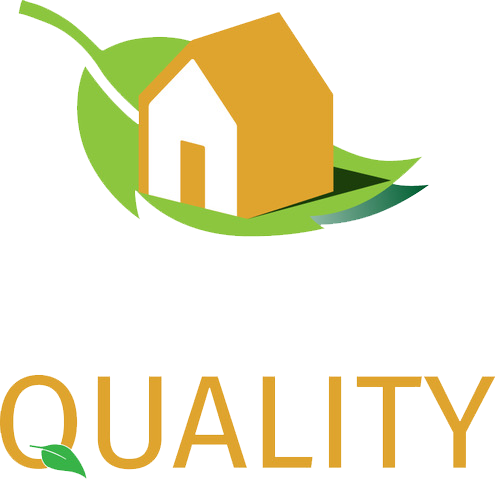On the 8th March 2024, the first ever Buildings and Climate Global Forum took place, with the cooperation of 70 country representatives, agreeing a foundational document called the Declaration de Chaillot.
Organised by the French Government and the UN Environment Programme (UNEP), held in Paris, the adoption of the Declaration will power work towards a rapid, fair and effective transition of the construction sector.
Bringing together around 1,400 individuals of state and non-state (engineering, construction and real estate) stakeholders that took part in the Forum, the event was dedicated to the decarbonisation and climate resilience of buildings reinforcement.
The Buildings and Climate Global Forum
Released by the UNEP and the Global Alliance for Buildings and Construction, (GlobalABC) the sector report states that the industry creates a fifth of all global greenhouse gases. In 2022, 34 percent of the buildings and construction industry’s operational energy along with 37 percent of process related CO2 emissions were created by the sector.
The Signing of the Declaration de Chaillot
With the acceleration ofclimate change, it is recognised that our buildings are at a greater risk of impact from climate-related threats, and it is thought that by 2050, 68% of the global population will live in urban areas – with anticipated demand for raw materials likely to double by 2060.
Those residing in developing countries and cities are, in particular, at an exposed risk and it is also acknowledged by signing ministers that the volume of renovations and constructions that are sustainable, is still at volumes of concern, impacting the widening chasm and goal towards the Paris Agreement in keeping global warming below 1.5 degrees by 2100.
With carbon intensity and the exploitation of natural resources within construction, the impact of disruption towards biodiversity and environmental degradation is increasing. Signing ministers declared publicly that the continued investment into buildings and systems perpetuates and excels negative climate affects with a poignant need to recognise improvement, shared vision and fast action.
Rapid implementation by the industry is needed in order to achieve the goals set within the Paris Agreement, bringing along all stakeholders, taking into account the importance of each states specifics, to coordinate and cooperate support towards transition.
The Ministers Committed To
- Move towards carbon-neutral buildings: Implementing roadmaps, regulatory frameworks, and mandatory building and energy codes;
- Implement an appropriate financial framework: with financial and fiscal incentives, and regulatory tools to increase the share of resilient, near-zero emission, and affordable buildings;
- Promote labels, standards, and certification adoption;
- Lead by example by adopting ambitious policies regarding public procurement;
- Promote low carbon production, development, and the use of low-carbon, durable, and cost-effective construction materials;
- Promote collaboration in value chains, as well as research and development of innovative solutions;
- Improve skills by strengthening local know-how, considering mitigation and adaptation strategies;
- Develop multi-level governance, coordinating among different stakeholders, and a more participatory approach to ensure coordination of implementation;
- Develop tools and regulatory frameworks that can collect and share data along with best practices.
In order for these commitments to be carried out and embedded the ministers pledged to use forums that are also of global status to actively incorporate the focused issues of construction and buildings, such as the likes of; G7, G20, G77, and Climate COPs.
The implementation will be monitored by the newly established “Intergovernmental Council for Buildings and Climate”, which coordinated by GlobalABC (formed in 2015 at COP21), will equally oversee the means of the Declaration.
This pathbreaking mobilisation is a pioneering, operative step represented by The Declaration de Chaillot that sees, for the first-time, a common declaration decided as a collective, in line with the Paris Agreement and engaging the reformation of the entire value chain within the industry sector.
Declaring Transitional Change of the Building and Climate Sectors
Although much work needs to be done in order to meet the commitments, the ground-breaking, “Declaration de Chaillot will boost cooperation and strengthen the implementation of local, national, and international climate action in the buildings and construction sector to support the goals of the Paris Agreement. The next round of National Determined Contributions (NDCs), to be submitted by early 2025, will offer a great opportunity to move from ambition to action and accelerate the transformation we need,” said Ligia Noronha, UN Assistant Secretary-General and Head of UNEP, New York Office.
The capacity to bolster a resilient transition across 70 governments in addressing the challenges faced by our climate will enable us to actively work to decarbonise, using an operational roadmap, building adaptability and transition through the buildings and climate sectors.
Lord Callanan, Minister for Energy Efficiency and Green Finance UK, was quoted stating:
“The UK has a record to be proud of when it comes to net zero, having become the first major economy to halve its emissions.But we know climate change doesn’t respect national borders, so we need to work together with our international partners and friends to meet this challenge head on. Signing the Declaration de Chaillot today is another important step, helping to ensure our nation’s buildings are fit for a low-carbon future, while also supporting the goals of the new Buildings Breakthrough.”
With the Declaration divided into 7 parts; recalling multilaterally endorsed texts and declarations, acknowledging facts published by international organisations, recognising national circumstances and the building sector, concerned by gaps and risks whilst setting the importance of the objectives along with the commitment to national pathways, policies and measures, the Ministerial Declaration stated its intention to reinforce international collaboration and commitment as a call to action from governments, state and non-state actors, in the building and construction sectors, to attain the Paris Agreement goals.
The endorsement of the Declaration is a global breakthrough and the need to follow up at senior administration (twice a year online), ministerial (annually) and all stakeholder levels (every 3 years) has been set. With the aim to review the initiatives and its implementation remaining critical in order to maintain a collective momentum and understanding at government, stakeholder and industry level.





